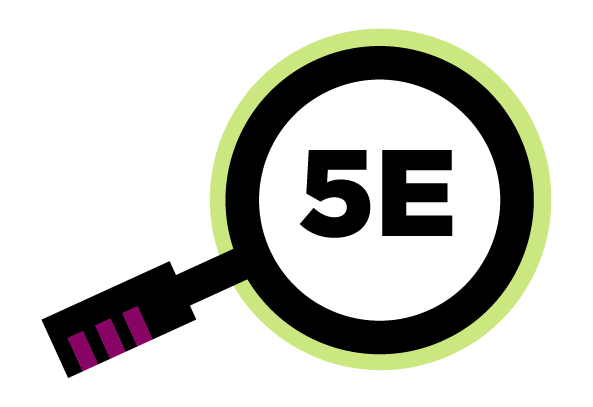Research Plan
Starting in 2015, many states adopted more rigorous, multidimensional science standards that raised expectations for all students. Most students with significant cognitive disabilities are taught by special educators who do not have deep knowledge of how to teach science.
This project filled the gap by introducing a new model for teaching inquiry-based science to students with significant cognitive disabilities. The project also introduced a professional development approach to help special educators apply the new model with their students.

The 5E-SESE system integrates a well-established inquiry science teaching model and Universal Design for Learning to make science instruction accessible to all students.
- Teachers design lessons that engage students in active learning as students develop conceptual understandings
- Lessons incorporate universal design principles to promote meaningful learning opportunities for the full range of students with significant cognitive disabilities
Relevant professional development to support teacher learning.
- Teachers complete self-directed modules to learn how to apply the 5E-SESE approach when designing instruction
- A virtual coaching model supports teachers in teaching and reflecting on their lessons
Explore the following publications and presentations from the 5E-SESE project. For more information on how to use the system, access the professional development and teaching approach resources on the Use 5E-SESE page.
Publications
| Title | Authors | Date | |
|---|---|---|---|
| Making Science-Inquiry Learning Accessible for Students With Complex Support Needs | Koebley, Wakeman, Ruhter, Pugalee, Karvonen | 2024 | |
| 5E-SESE Phase 1 Research Report | Ruhter, L., Swinburne Romine, R., Karvonen, M., & Koebley, S. | 2020 |
Presentations
| Title | Location | Authors | Date |
|---|---|---|---|
| Universally Designed, Inquiry-Based Science Instruction for Students with Extensive Support Needs | DADD | Ruhter, Williams, Karvonen, & Wakeman | 2024 |
| Integrated Science Instruction for Students with Significant Cognitive Disabilities | Pennsylvania Department of Education Annual Meeting | Karvonen, Ruhter, Williams | 2024 |
| Professional Development in Science Education for Special Educators Incorporating the 5E Model and Three-Dimensional Learning | AERA | Pugalee, Ruhter, Karvonen, Wakeman, & Koebley | 2023 |
| Universally Designed, Inquiry-Based Science Professional Development for Special Educators | CAST UDL Symposium | Ruhter, Karvonen | 2023 |
| Science for Students with Significant Disabilities | NSF STEM For All Video Showcase | Karvonen, Koebley, Ruhter, Wakeman, Pugalee | 2022 |
| Towards effective science teaching and learning for students with significant cognitive disabilities | 2021 CEC L.I.V.E Conference | Ruhter, L., Koebley, S., & Karvonen, M. | 2021 |